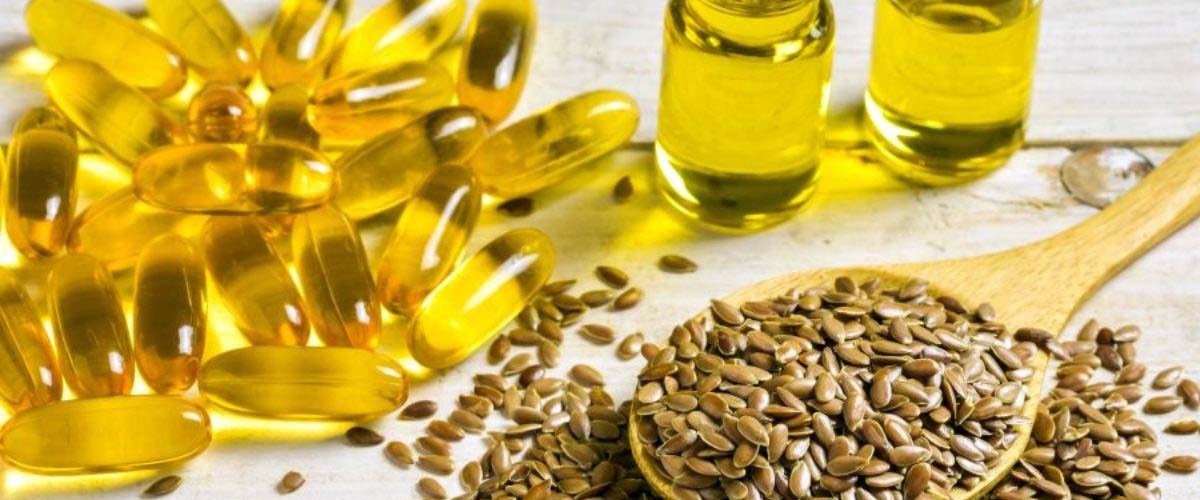Flaxseed is one of the most unique oil seed crops because of its exceptionally high content of the omega-3 polyunsaturated fatty acid (PUFA) and α-linolenic acid. Flaxseed is usually grown for its oil and dietary fiber content. It is also a good source of essential amino acids and proteins, lignin, lecithin, vitamins and minerals1.
Lipids (fats) are essential for the growth of broilers2. Since broiler diets typically consist of corn and/or soybean meal, supplementation with fats and oils is a common economic way to increase the efficiency of the ration3. Fats and oils not only help improve feed quality, but they also reduce the amount of dust produced by dry feed stuff (prevent particle separation), increase palatability and act as a digestive lubricant (emulsification and rate of food passage), thereby increasing digestibility3.
With the increased consumption of highly saturated fatty foods worldwide, it has become clear that modern diets do not meet healthy eating guidelines and lack certain long chain omega-3 fatty acids among other important nutrients. It is widely accepted that inadequate intake of omega-3 PUFAs, such as ALA and DHA, adversely affects cardiovascular function.
Incorporation of omega-3 fatty acids into eggs and meat by feeding flaxseed to animals is an efficient way to increase their PUFA content4. Therefore, in this context a new study was carried out which investigated the effect of daily supplementation of different amounts of dietary flaxseed oil on growth performance and serum lipid profiles of broilers5.
The effect of daily supplementation with different amounts of flaxseed oil on live body weight, weight gain, feed consumption and feed conversion ratio of broilers was calculated.
Different flaxseed oil treatments had a significant effect on weight gain. The weight gain of broilers was negatively affected by the increased level of flaxseed oil in the diet.
The results showed that flaxseed oil supplementation had a significant effect on the feed conversion ratio of broilers. Moreover a significant decline in total serum cholesterol and triglyceride levels was found with increasing dietary flaxseed oil concentration. The decrease in total cholesterol may be related to the fact that flaxseed oil is rapidly absorbed by the intestine, which is helpful in lowering saturated fatty acid absorption.
The study discovered the effect of flaxseed oil supplementation on growth performance and serum lipid profiles of broiler that may be beneficial to the health of those that consume their meat. It will help researchers uncover critical areas of broiler production related to human health that many researchers have not yet explored.
Keywords:
Flaxseed oil, growth performance, broilers, serum, lipid profiles, supplementation of broilers, omega 3, broiler production, fatty acid absorption, feed conversion ratio, cardiovascular function, efficiency of the ration, fats and oils, nutritional efficiency, broiler diet.

References:
- Kajla, P., A. Sharma and D.R. Sood, 2015. Flaxseed-A potential functional food source. J. Food Sci. Technol., 52: 1857-1871.
- Leeson, S. and J.D. Summers, 2001. Scoot’s Nutrition of the Chicken. 4th Edn., Nottingham University Press, UK., pp: 30-50.
- Baiao, N.C. and L.J.C. Lara, 2005. Oil and fat in broiler nutrition. Braz. J. Poult. Sci., 7: 129-141.
- Al-Daraji, H.J., H.A. Al-Mashadani, W.K. Al-Hayani, H.A. Mirza and A.S. Al-Hassani, 2010. Effect of dietary supplementation with different oils on productive and reproductive performance of quail. Int. J. Poult. Sci., 9: 429-435.
- Ali H. Al-Hilali, 2018. Effect of Dietary Flaxseed Oil on Growth Performance and Serum Lipid Profiles in Broilers. Pak. J. Nutr., 17: 512-517.
















Add comment